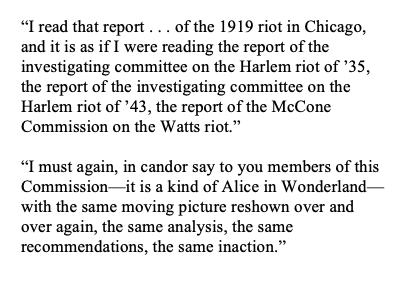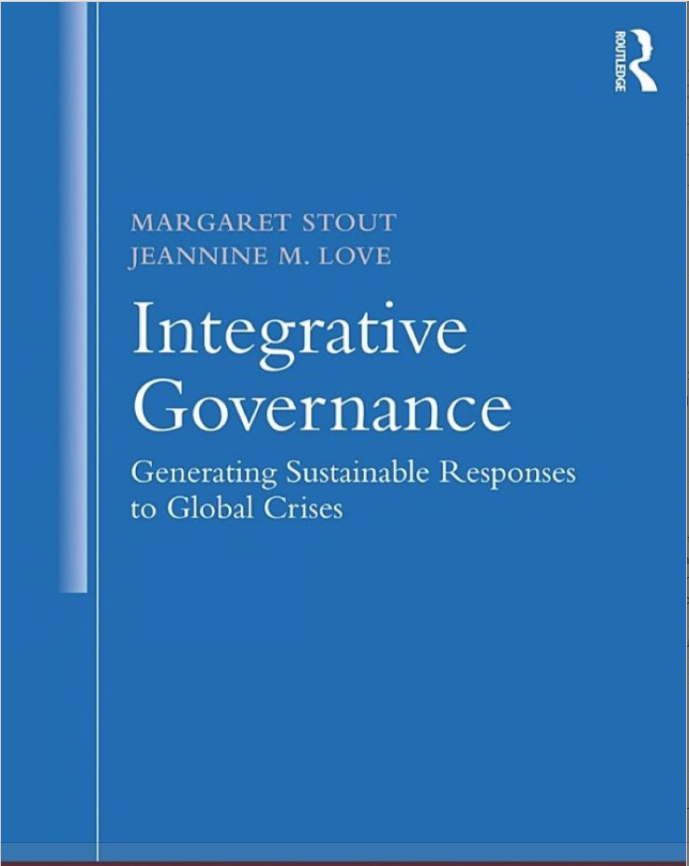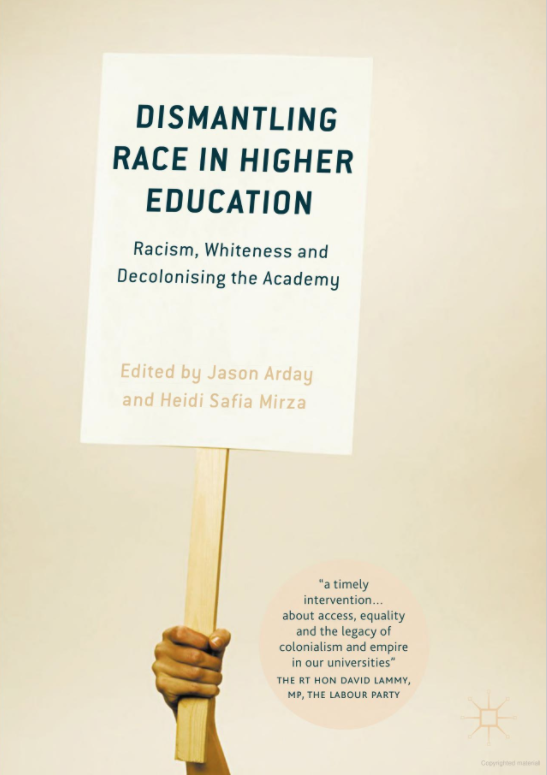Looks like I’m up next for #PAScholarStrike! I’ve been tapped to talk about the imperative for organizations to conduct “social justice audits.” #ScholarStrike
https://twitter.com/SeanMcC_PA/status/1303666951370280960?s=20
In particular, I’m going to be talking about the need to identify the white supremacist roots of our organizations (I’m looking at you academia) and transform how power operates within them—and that traditional approaches to self-study are inadequate and even harmful.
While I’m focusing today on white supremacy, it’s necessary to remember that systems of oppression intersect and therefore any thorough social justice audit needs to consider all forms of oppression within an organization. Approaches to inclusivity need to as well.
I’m going to kick this thread off by chatting a bit about the Moynihan and Kerner Commission reports. (Yes, I can already feel the deep sighs through the interwebs. There’s a point, I promise. #HistoryMatters)
In 1965, LBJ gave a commencement speech at Howard University. The focus was on the next step in the advancement of Civil Rights. The substance of the speech was largely lifted from what would become known as the Moynihan Report, released (or leaked, rather) that same year.
I won’t rehash Moynihan here but will simply remind folks that the legacy of this report is found in its description of a “tangle of pathology” that Moynihan insisted resulted from the “deterioration” of the Black family. It was rife with racist stereotypes and blame-shifting.
In 1968, after a series of uprisings swept across US cities, LBJ appointed a commission to find out what the hell had just happened and why. The result was the Kerner report. Unlike Moynihan, this report pointed the finger squarely (if vaguely) at white society:
“White society is deeply implicated in the ghetto. White institutions created it, white institutions maintain it, and white society condones it.”
It was a strikingly different tone and conclusion than Moynihan’s.
It was a strikingly different tone and conclusion than Moynihan’s.
I start with these two reports on racial inequity in the US to highlight three points:
1. The difference in findings, individualist versus structural
2. The difference in methodology
3. The difference in reception
1. The difference in findings, individualist versus structural
2. The difference in methodology
3. The difference in reception
We’ve covered point 1. Let’s move on to point 2… Methodology
Moynihan was the primary author of his report. He relied on research assts to help compile the data for his graphs, he read some scholarly work on race, and he communicated with some Civil Rights leaders. He drew his conclusions. His was a decidedly “armchair” approach.
In contrast, members of the Kerner Commission traveled to affected cities and engaged in face-to-face conversations with community members, hearing the stories of how folks’ lives were shaped by structural racism and systemic inequity, creating space to develop empathy.
See this paper by @VCUWilderDean and Myers for a discussion of this methodology
jstor.org/stable/10.7758…
jstor.org/stable/10.7758…
At this point, it needs to be noted that while the qualitative methodology utilized by the Kerner Comm resulted in greater empathy and was able to identify patterns of structural racism, the identities of the researchers still influenced the findings.
Check out @HannahLebovits on this point from an earlier #PAScholarStrike thread
https://twitter.com/HannahLebovits/status/1303695966038564865?s=20
In a separate paper @VCUWilderDean & Myers point out there were only two Black individuals on the commission and none on the research or mgmt teams (we’ll come back to this point).
journals.sagepub.com/doi/10.1177/00…
journals.sagepub.com/doi/10.1177/00…
So, pt 3: How were these reports received?
The Moynihan Report was leaked to the press before going to print, receiving intense criticism for perpetuating long-standing racist stereotypes, and LBJ distanced himself. HOWEVER, the report has continued to shape policy debates.
The central theme—“At this point, the present tangle of pathology is capable of perpetuating itself without assistance from the white world”—depicts white supremacy as something in the past and extracts Whiteness from ongoing responsibility for inequality.
This fed into personal responsibility talking pts on the right and white saviorism on the left. Indeed, the head of the Congress of Racial Equality (CORE), James Farmer, called the report a “massive cop-out for the white conscience”
What about Kerner, you ask? Well, if you’ve watched John Oliver’s recent segment on policing, you might already know where this is going.
The Kerner report faced angry backlash for calling out white society so directly. LBJ, cowing to this pressure, refused formal receipt of the report, wouldn’t discuss it with media, and even refused to sign cards thanking commission members for their service. [petty much?]
Okay, so why this tangent on two reports shelved 50+ years ago? Because not only have the underlying societal problems not gone away, & response to them hasn’t changed:
1. Issue a public statement
2. Create a committee
3. Do nothing (or take symbolic but not substantive action)
1. Issue a public statement
2. Create a committee
3. Do nothing (or take symbolic but not substantive action)
We are seeing this cycle pop up again now as organizations scramble to *appear* to be responding to racial justice protests. Suddenly companies, nonprofits, universities are all issuing public statements in support of the mvmt for Black lives.
https://twitter.com/stephaniepuello/status/1303728324598931456?s=20
Even when orgs do engage in self-studies, leadership still tends to take one of these two limited quant/qual approaches:
1.The “Moynihan approach” – a small task force analyzes demographic data
2.The “Kerner approach” – a small task force interviews/ focus groups
1.The “Moynihan approach” – a small task force analyzes demographic data
2.The “Kerner approach” – a small task force interviews/ focus groups
And, like both reports, the folks collecting and interpreting the data (quant or qual) tend not to be broadly inclusive or participative. The result? Analysis is disconnected from collective humanity, incomplete, and even harmful.
Dipping back into @HannahLebovits excellent thread to highlight this point
https://twitter.com/HannahLebovits/status/1303702927614279682?s=20
The "Moynihan approach" is prevalent. It signals that the org cares about DEI but can be easily directed by leadership and generally leaves institutional structures and power dynamics largely untouched. It is unlikely to uncover pertinent information about organization climate.
Depending on how the data are framed these reports may, like Moynihan, at best promote “charitable” efforts (scholarships) or targeted recruitment without changing institutional structure. At worst they perpetuate oppressive stereotypes that feed into the organization’s climate.
See @JamesEWrightII’s excellent discussion of Whiteness in academia, for instance
https://twitter.com/JamesEWrightII/status/1303763542252847104?s=20
In the Kerner approach, orgs may employ org-wide interviews or dialogues that uncover systemic aggression/ oppression against BIPOC & other marginalized folks in the org. This approach requires leadership to relinquish *a small amount* power for the study to even occur.
As @JadeBerryJames says, #LeadershipMatters
If the data in the latter approach are followed to their conclusion, they require that organizations seriously revisit their foundings, institutional norms, organizational structures, and power dynamics. Systemic transformation is necessary.
Like Kerner, such findings are often rejected or shelved. Ahmed notes that when institutional racism is uncovered: “It doesn’t take long for management enthusiasm to shift into hostility” thereby dooming the organization to a perpetual cycle of study followed by inaction. 

.@VCUWilderDean also describes a common passive-aggressive response to social justice and racial equity plans where leadership doesn't directly oppose recommendations and initiatives, but finds ways to undermine these and stymie action 

Should the effort make it past leadership to implementation, deep institutional change is often watered down to a series of DEI trainings. Even these are also likely to face resistance, anger, resentment, and retaliation. As we saw clearly last week:
This is not surprising.
https://twitter.com/consciouskidlib/status/1302624825609920512?s=20
The reality is that a thorough social justice audit will name existing patterns of privilege/ oppression, call out toxic behaviors such as racist microaggressions and gaslighting, and recommend fundamentally transforming the organization. Resistance is likely if not inevitable.
This is a heavy lift. Rather than contending with the change necessary to dismantle white supremacy, leadership often chooses instead to maintain the status quo.
This may lead to symbolic actions rather than substantive. For an example of symbolic action, see for instance nbcnews.com/news/us-news/p…
Don’t get me wrong, I fully approve of this move by Princeton. It is long overdue. But it needs to be followed by meaningful structural change.
https://twitter.com/stephaniepuello/status/1303735024320045056?s=20
As @dianapnegron reminded us earlier today
https://twitter.com/dianapnegron/status/1303750696609738753?s=20
Anyhow, this is a well-worn pattern, and one that Kenneth Clark spoke to when he told the Kerner Commission: 

How do we avoid simply repeating the Alice in Wonderland picture show?
First of all, we must be clear that statements are necessary but not sufficient. Recognize that inaction is action.
scientificamerican.com/article/on-rac…
scientificamerican.com/article/on-rac…
.@amber_spry offers these five additional steps: 1) take responsibility; 2) make sure processes informing org actions are inclusive and representative...
wbur.org/cognoscenti/20…
wbur.org/cognoscenti/20…
3) make sure budget reflects values, including compensating marginalized folks for add’l labor (more on that in a sec); 4) create structures/ networks of support for BIPOC folks; 5) create processes for ongoing feedback/ influence
This work must be institution-wide and ongoing. @equityinthectr recommends ways to get started in this report and highlights that there are many organizational “levers” in play. Any process must consider all of these and how they interact. 

You can find the report here equityinthecenter.org/wp-content/upl…
Check out the @RaceForward toolkit shared by @SheRambl earlier today
https://twitter.com/SheRambl/status/1303750288541655040?s=20
I am not saying don’t form a committee. PLEASE, form a committee. Form a bunch of working groups that include voices from across the organization—anyone who wants to be part of the process should be included. This must be participative shared governance.
Have these groups work collaboratively within a nonhierarchical network. Draw from nonhierarchical organizing—sociocracy, spokes councils, etc. 

There are models for this. Stout and I talk about these kinds of org structures in our chapter on “Facilitative Coordination” in Integrative Governance. 

These efforts must also be fully inclusive. In other words, don’t repeat the problem of Kerner. HOWEVER, also recognize that BIPOC and other marginalized folx bear a disproportionate amount of this service work and they must be compensated for their efforts.
If these efforts aren’t inclusive they are going to be shaped by the influences @JamesEWrightII talked about last hour in examining Whiteness
https://twitter.com/JamesEWrightII/status/1303756630950064128?s=20
And illustrate why Critical Race Theory is so essential (check out this great thread from @urbanrambl_)
https://twitter.com/urbanrambl_/status/1303757642452566017?s=20
Be aware that working toward social justice is a never-ending process. This will not be a one-and-done report. Build structures and processes that facilitate ongoing and open dialogue. Create spaces that support difficult conversations.
Learn how to engage in and facilitate those conversations.
This is why we need centers for truth, racial healing, and transformation like the one @SheRambl just opened at University of Cincinnati
newsrecord.org/news/uc-establ…
newsrecord.org/news/uc-establ…
And, lest you think that your social justice organization need not worry because y’all are all about social justice… think again.
sojo.net/articles/socia…
sojo.net/articles/socia…
Maylor importantly notes that academic institutions with a commitment to social justice have not seen “more equal power structures,” and continue to perpetuate structures in which “the scales of leadership [are] firmly tilted towards White leaders.” 

“Our role in the transformation of academe, or the world, must begin with a critique of ourselves. And the transformation will proceed in two stages: first an analysis and buttressing of ourselves, then a transformation of the intellectual and physical spaces we occupy” (BM John) 

Organize where you are. All of us have to do this work.
And with that, I’ll pass the #PAScholarStrike baton to the triple thread extravaganza of @Delmnb, @Parisa_Vinzant, and @MeghanWilson to close us out.
@threadreaderapp unroll
• • •
Missing some Tweet in this thread? You can try to
force a refresh




